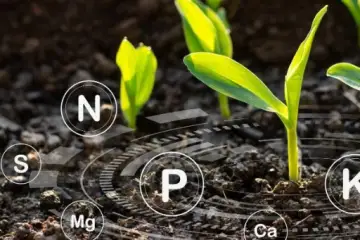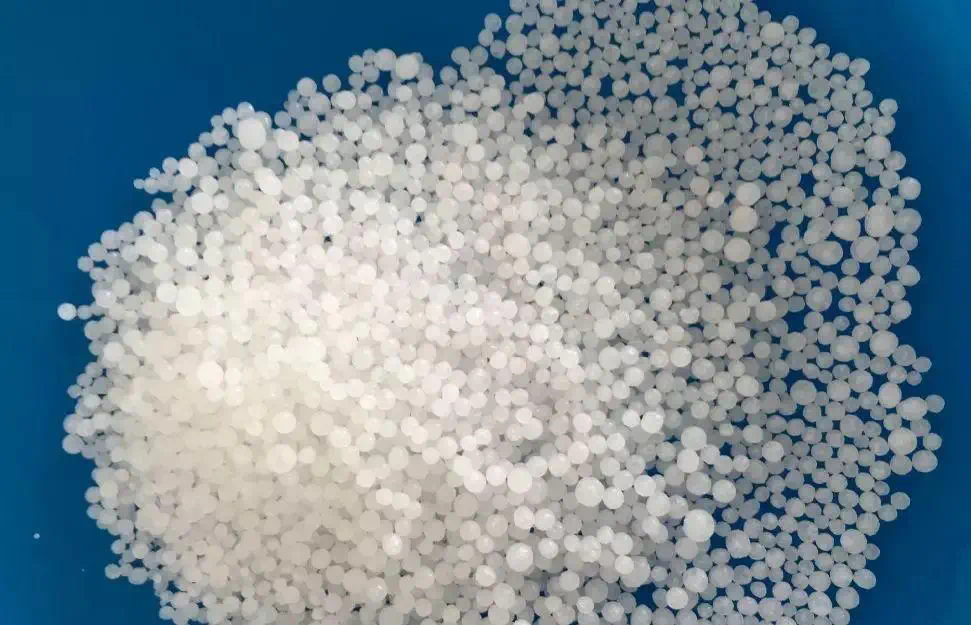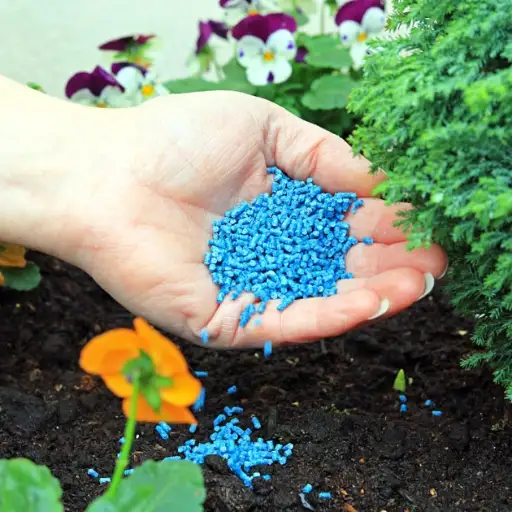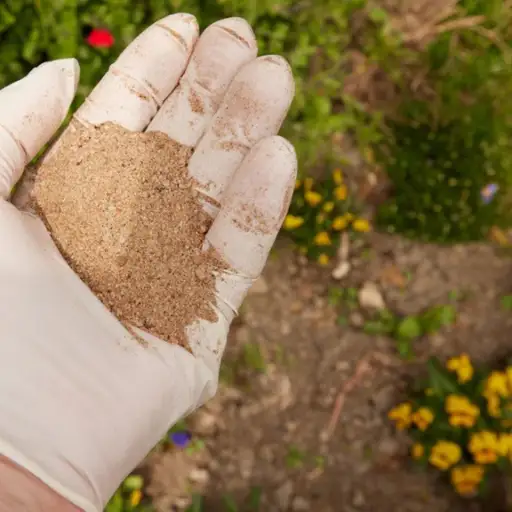Introduction
Water soluble fertilizer is a big step for agriculture, it is a new type of fertilizer that will greatly improve the efficiency of plant nutrients absorption, it is water soluble that dissolve immediately in water and will supply nutrients to plant roots immediately when absorped water by plants. the efficiency of water soluble fertilizer will greatly improve plant growth especially in the early stage of crop cycle.
Water soluble organic fertilizer has profound significance beyond economic efficiency. As Susan Harwood, PhD, a leading agricultural scientist, explains: ‘Water soluble organic fertilizers are appropriate for modern agriculture because they are immediately accessible for the plants and, at the same time, they dramatically lessen the environmental cost associated with the conventional fertilising of crops. Since water soluble fertilizers dissolve directly into water, fertilizer runoff and nutrient waste are greatly reduced, making them a key component of sustainable agriculture strategies that are becoming ever more prevalent on a global scale. This method simultaneously promotes healthy crops, maintains quality of water, and improves the health of soil.’
In sum, introducing water soluble farming fertilizer into industrial farming can effectively address the conflict between the agricultural productivity and development and environmental conservation, and provide people with practical guidance for the utilization of solid and organic fertilizer. This text is referred to as ‘Water Soluble Farming fertilizer – Everything You Need to Know’.
Key Benefits of Water Soluble Organic Fertilizer
Promoting water soluble organic fertilizer is essential for transforming agriculture. It is a safe and effective way to boost plants’ growth and enhance them healthly. In addition, it does benefit farmers with more green and sustainable agri culture.
Prominent among these are the accessible nutrient availability and enhanced absorption offered by water soluble organic fertilizers. This occurs immediately after application because these plant nutrients, which are in solution, disperse rapidly in the water used to apply them, and immediately become available in the root zone, without the need to wait months for traditional fertilizers to fully break down in the soil. This leads to direct uptake by plants, which in turn fuels their fast growth and development, especially in the beginning phases of their life. This has a direct impact on their vigour and overall improvement in plant physiology.
Dr Leonard Green, a professor of plant physiology specialising in small fruits, greenhouse crops and sugar performance, said, “It’s in the first five minutes or first couple of hours of application that the fast action of water soluble organic fertilizers increases the efficiency of photosynthesis and gives whole plant vigour a boost right off the bat.
Besides, the application of water soluble organic fertilizers eliminates labour as well. They can be applied through irrigation systems – through the technique of fertigation – and thus the nutrients can be supplied at the point of need specifically. “Fertigation helps to control nutrient supply by delivering fertilizers at the exact site and time in the right amount, minimising runoff losses leading to environmental pollution,” Dr Green said. ‘It also helps to save water and fertilizers, and cut down labour.’
Third, higher yield and better health: it has been shown repeatedly that well-fed plants are healthier, more vigorous and more productive, especially for high-value crops where quality is closely correlated to yield and thus market success. Plants with nourished roots that are supported by healthy soils are more resistant to pests and disease, so fewer chemical pesticides are required.
The availability of water soluble organic fertilizer can help farmers to gain more crops, increase the nutritive value of crops and enhance agricultural sustainability. Consequently, the investment and application of water soluble organic fertilizers will play an increasingly important role in agricultural modernization, which will help us realize a higher-yield, optimized-structure and high-intelligence agriculture.

Types of Water Soluble Organic Fertilizers
We will see diversified type of water soluble fertilizer. Each type have different formula and used for specific field accident. They also used for different local belief. Function and ingredient of each type probably help farmers to choose proper fertilizer for their crop.
One type is seaweed extracts, favoured for their high levels of micronutrients and natural growth hormones. Part from providing essential elements such as potassium and iodine, these are used to stimulate plant growth and stress-resistance.
Another common additive is fish emulsions, made from processed fish waste. Including fish emulsions in compost boosts nitrogen levels, which plants need to produce lush, leafy growth, while also providing vital amino acids and proteins to drive healthy plant growth. These fertilizers are especially well suited for young plants and seedlings to provide a balanced nutrient boost that allows them to grow up strong.
Water soluble fertilizers derived from organic products, such as compost teas, are created when compost is steeped in water to leach out nutrient rich compounds, which are in turn combined to create a liquid fertilizer that allows the health benefits of compost (eg, soil building attributes, increased microbial activity) to be delivered directly to the plant via irrigation. As compost teas have a greater capacity to enhance soil fertility and structure, they are best suited to an organic farming system.
Generally speaking, there is a unique benefit to each type of water-soluble organic fertilizer – and therefore it depends on crop, soil and climate. Seaweed extract might be a good growth-stimulant choice for the vegetable garden, while fish emulsions could be the way to go with a corn crop. Water-soluble fertilizer for long-term crop cultivation areas, such as orchards and perennial gardens, might want to stick to compost teas, which engender the best long-term soil health.
Understanding what type of water soluble organic fertilizer is needed, farmers can support their crops’ nutrition in a correct way, and ensure healthy growth for more yield in different agriculture systems.
Application Techniques for Optimal Efficiency
If water soluble organic fertilizer is not applied properly, its use could be erratic and might offer little benefits both for crop growth and human health. The techniques of application and utilisation are the most sensitive key factors of water soluble organic fertilizer which significantly influence its efficiency and effectiveness.
To optimize the beneficial effects of water soluble organic fertilizer, accurate preparation and application must be observed. Carefully dilute the concentrate according to the manufacturer’s instructions to avoid scorching plant leaves or overfeeding. Roberts wrote: ‘Never make a mistake of mixing water soluble organic fertilizer with water directly as it shall cause a great deal of problems …With deep consideration and orientation, these fertilizers must be thoroughly diluted with an appropriate amount of water.’
Fertigation, the delivery of fertilizers through an irrigation system, also facilitates use of simplified and exact nutrient measurement, delivery and timing. The nutrients in fertilizers are transported directly to the plant roots, where they are needed and used, with precision and maximum efficiency – few systems are more efficient – and very little water or plant nutrition is wasted. Dr Roberts adds: ‘if there is a fertigation system in use, all it takes is applying the exact amount of fertilizer each plant needs, which produces optimal growing conditions without waste.’
Other factors include seasonal needs and how often the natural fertilizers are applied. Plants’ nutrient needs can fluctuate widely with the seasons, depending on the seasonal needs of the crop and ambient environmental conditions. More nitrogen can help plants in early growth stages, for instance spring, while potassium would be better suited for the fruiting and flowering needs of a plant during other seasons. ‘To gain the best application of the fertilizer,’ said Dr Roberts, ‘adjust the fertilizer application parameters based on the plant’s growth stages and needs per season to minimise waste.’
Following these anenguo method can help gardeners and farmers apply the water soluble organic fertilizer properly, so as to bring forth more acceptable nutrients, help more plants grow fairly well, conserve resources and protect environment. Eventually, our goal is perfected in plant health produced by anenguo, rather than massive crops.

Managing Soil Health with Water Soluble Organic Fertilizers
The effective management of soil health ensures that the soil is in a good state to take maximum benefits from the use of water soluble organic fertilizers as this helps to keep the soil pH levels in balance as well as the nutrient density, which is essential for farmers to ensure continued fertility and sustaining the crop life cycle so that plants can grow to full potential.
Maintaining optimal soil pH and nutrient density is key to maximising the value of your water soluble organic fertilizer. Water soluble fertilizers are typically highly soluble, and soil chemistry directly affects nutrient availability. This means that soil pH should be monitored regularly to ensure it doesn’t become too acidic or alkaline. Dr Allison Turner, an expert in soil health, says: ‘Set a schedule for soil testing, as water soluble fertilizers are typically highly soluble and will often change the chemistry of the soil. Adjustments to inputs may be required in order to use a pH that supports maximum nutrient availability and microbiology.
Soil-health monitoring techniques would include testing soil nutrient levels, pH and organic matter content on a regular basis. These tests could be used to determine whether or not additional amendments, such as lime and organic matter (compost), would be needed to maintain that ideal balance. For example, if a soil test suggests low microbial activity, adding organic matter, such as compost, can help improve the macro-porosity of the soil while also increasing the effectiveness of water soluble fertilizers.
Soil amendments that include lime and/or gypsum might be required to correct any problems with pH, and organic matter is useful to buffer nutrient solutions, to offer a source of oxygen for microbial life, and to provide required nutrients for microbial survival in soils. All of these products ensure balanced, efficient and sustainable fertilisation, as well as ensuring the long-term health of the soils that will require less chemical inputs on a year-to-year basis.
By managing soil health, and also modifying practices to improve soil structure based on soil test results, agriculturalists will gain the fullest benefit from water soluble organic fertilizers, leading to a healthy plant and higher yield. Moreover, they will help to maintain the agricultural ecosystems in a sustainable way. The soil will remain productive and in a healthy state to continue to support vigorous plant growth year after year.
Conclusion
In summary, Water soluble organic fertilizers are of a very important improvement in the domain of agriculture. And it has a number of benefits like quick availability of nutrients, simplicity of application and the reliability of crop growth and better health. Hope you find this guide useful with your further understanding.
These small-scale trends and innovations in the formulation and application of water soluble organic fertilizer will become increasingly important. Advances in irrigation technologies, specifically precision fertigation systems and soil sensors, are simplifying the process of applying these fertilizers in a manner that would minimise plant uptake and maximise losses to surface and groundwater, as well as the atmosphere.
Moreover, as the world’s agricultural community gradually migrates to more sustainable and environmentally friendly practices, water soluble organic fertilizers will be increasingly important components of this shift towards more environmentally friendly, healthy and nutrient-rich food supplies, and a more sustainable food security for our global community.
Water soluble organic fertilizers should be used by farmers, gardeners, and agriculturists. They should also improve the techniques and technology to apply them to increase their efficacies. In this way, they can play vital roles in sustainable future. An application, which actually improves the yield of the crop can also build up the health of the planet and promote environmental sustainability. Readers of this scope can use these fertilizers in effective ways to reach the goal of increasing crop yield with encouraging environmental sustainability.
Here’s a list of references that provide detailed information on water soluble organic fertilizer:
- Organic Materials Review Institute (OMRI) – Provides lists and resources about organic materials, including water-soluble fertilizers approved for organic use.
- The Organic Center – Conducts and gathers research on organic agriculture, with an emphasis on the efficacy and environmental impact of organic fertilizers.
- Garden Organic – A leading organic growing charity that provides comprehensive advice on organic gardening, including the use of water soluble fertilizers.
- ResearchGate – Features academic papers and articles on the latest research in agriculture, including studies on water-soluble organic fertilizers and their effects on plant growth and soil health.









